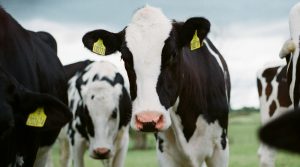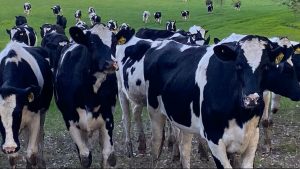
Yesterday Bega Cheese sent letters to suppliers including its offering of $8.40 a kilogram for the next 2022-23 financial year for all its Victorian, South East South Australian and Riverina suppliers.
However, the company will need to supply Bega on an exclusive basis for the coming financial year.
Bega Cheese also announced a 10 cents milk solids step-up and price increase for the 2021-22 financial year.
The step-up and price increase will apply for the July 2021 to June 2022 period.
Bega executive chair Barry Irvin said the step-up and milk price increase reflected strong global dairy commodity markets.
“Bega Cheese’s endeavour to ensure we are delivering a competitive milk price to our suppliers,” he said.
“Depending on supplier size and supply profile, most of our suppliers will receive an opening milk price in the range of $8.20/kgMS to $8.60/kgMS for our Vic, South East SA and Riverina exclusive suppliers.”
“As is always the case when setting milk price, it was important that we considered the returns in both the Australian and international markets, the milk requirements for our significantly expanded portfolio of products and the competitive circumstances in each of our regions.”
Bega beverage operations executive general manager Mark McDonald said the 2022-23 opening milk prices reflected the strength of Bega’s broader and diversified branded domestic and international dairy business.
“Bega is supporting its exclusive suppliers with record average prices and incentives for productivity, quality, new milk and growth and encourages growth from our current suppliers and also welcomes new suppliers to the Bega family,” he said.
But Mr Gladigau said the $8.40/kg for milk solids would not be enough.
“I think that given the rising costs, for a lot of people that won’t be enough,” he said.
“There’s certainly people talking we should be in the $9 mark, as they’re talking $9 now in NSW.
“If they’re paying $9 for domestic milk in NSW then why can’t we get $9 for domestic milk across the board.
“It’s all used for the same product and really, part of it will also come back to that we need an increase across the whole supply chain.
“Whether retailers will have to stamp the price up to consumers, but it has to be passed back along the whole chain that everybody else is getting a piece of that as well.”
Mr Gladigau said the price announced was certainly reflecting their concerns about continuing milk supply to keep product on the shelf.
“Talking to the people in NSW with flooding, there certainly would be some issues over how much milk is going to be available given what those farmers are dealing with from the flooding and animal health issues now,” he said.
“I think there’ll be a decrease of supply in NSW, which they would then pull it out of say northern Vic was their fill in but even now there is not the volume in northern Vic.
“There’d be certainly be some processors which are a little bit concerned about where the milk will be coming from and it’s much easier to keep the farmers you have than try and get farmers to come across (to dairy farming) so that also reflects in the prices.
“If they pay a good price, we will keep the farmers if it’s not going to be good enough they’ll have to do step ups to (keep supply).”
Dairy Australia industry insights and analysis manager John Droppert said they were seeing very stagnant milk supply globally.
“There’s confidence that there isn’t going to be huge amount of supply on the market to disrupt the current prices that we’re seeing in terms of commodities,” he said.
“Contributing to a smaller milk pool is shortages of labour, even predating COVID, competition for land – especially in southwest Vic and southern Vic in general – we’ve seen the beef industry, horticulture,” he said.
“Horticulture is big because of the competition for land and groundwater.
“We’ve seen a lot of exits out of the industry, especially with asset values being very high.”
He said due to an inflationary cycle across the world, shelf prices were expected to do their own thing.
“And that’s expected across the whole supply chain,” he said.
“The shelf price is only up about 2 per cent, compared to last year on the last data we’ve got.
“I think you’re going to see a lot more inflation on the supermarket shelf, which will be partly driven by farmgate price and commodity prices and it’s going to be partly driven by the logistics of getting products on the shelf as well.”
Earlier this month Bulla Dairy Foods revealed its 2022-23 opening milk price in the range from $7.40-$8/kgMS.
But the question remains of how it will compare with other processors that are still yet to make their announcements.
La Casa Del Formaggio managing director Claude Cicchiello said they were in discussions with their existing milk supply partners.
“(They are) actively seeking additional milk from new suppliers, as demand for fresh cheese products continues to accelerate,” he said.
The company is expected to announce its opening price in the next four weeks while Beston’s Global Food Company general manager Hamish Browning said they would announce their opening milk price soon.
Saputo and Fonterra were contacted for comment.
























